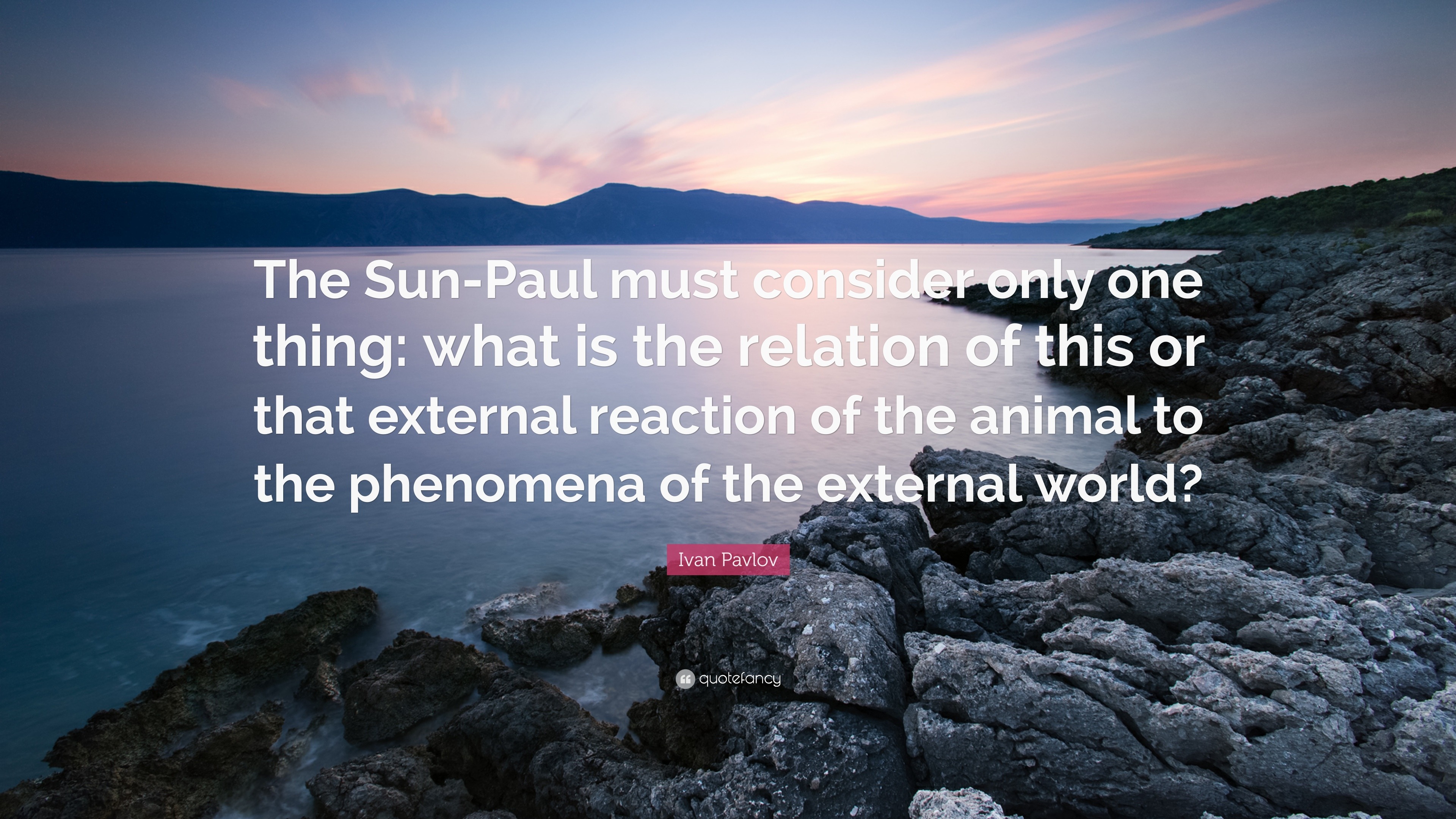Ivan Pavlov (born September 14 [September 26, New Style], 1849, Ryazan, Russia—died February 27, 1936, Leningrad [now St. Petersburg]) Russian physiologist known chiefly for his development of the concept of the conditioned reflex.In a now-classic experiment, he trained a hungry dog to salivate at the sound of a metronome or buzzer, which was previously associated with the sight of food.
Ivan Pavlov – Don’t become a mere recorder of facts, but…
Which of the following statements about Ivan Pavlov is NOT true? A. He was a physiologist originally studying the digestive systems of dogs. B. He conducted research that laid the groundwork for classical conditioning. C. He found that dogs would salivate in response to a stimulus that had previously been paired with food. D.

Source Image: healthline.com
Download Image
Ivan Petrovich Pavlov ( Russian: Иван Петрович Павлов, IPA: [ɪˈvan pʲɪˈtrovʲɪtɕ ˈpavləf] ⓘ; 26 September [ O.S. 14 September] 1849 – 27 February 1936) [2] was a Russian and Soviet experimental neurologist and physiologist known for his discovery of classical conditioning through his experiments with dogs.

Source Image: quotefancy.com
Download Image
Oleg Dahl. | Лица уходящей эпохи! | Дзен
Ivan Pavlov: B) B.F. Skinner: C) John B. Watson: D) Edward Tolman: 2: Ivan Pavlov used the term unconditioned to refer to _____. A) a stimulus or event that increases the likelihood that behavior will be repeated: B) … Each of the following statements is true EXCEPT _____. A) social learning involves how people make decisions and act upon the

Source Image: littleones.co
Download Image
Which Of The Following Statements About Ivan Pavlov Is True
Ivan Pavlov: B) B.F. Skinner: C) John B. Watson: D) Edward Tolman: 2: Ivan Pavlov used the term unconditioned to refer to _____. A) a stimulus or event that increases the likelihood that behavior will be repeated: B) … Each of the following statements is true EXCEPT _____. A) social learning involves how people make decisions and act upon the
Study with Quizlet and memorize flashcards containing terms like The career of Ivan Pavlov is most closely associated with _____ therapy., Which of the following statements about Ivan Pavlov is NOT true?, In the early 1900s, _____ argued that the classical conditioning lessons learned from Ivan Pavlov’s experiments with dogs should apply to humans also. and more.
Can you ‘train’ your baby to sleep? – Little Ones
Feb 2, 2024Pavlov’s studies of classical conditioning have become famous since his early work between 1890 and 1930. Classical conditioning is “classical” in that it is the first systematic study of the basic laws of learning (also known as conditioning). Pavlov’s dogs were individually situated in secluded environments, secured within harnesses.
Ivan Pavlov Quote: “Men are apt to be much more influenced by words than by the

Source Image: quotefancy.com
Download Image
Ivan Pavlov | Physiologist, Childhood days, Infographic
Feb 2, 2024Pavlov’s studies of classical conditioning have become famous since his early work between 1890 and 1930. Classical conditioning is “classical” in that it is the first systematic study of the basic laws of learning (also known as conditioning). Pavlov’s dogs were individually situated in secluded environments, secured within harnesses.

Source Image: in.pinterest.com
Download Image
Ivan Pavlov – Don’t become a mere recorder of facts, but…
Ivan Pavlov (born September 14 [September 26, New Style], 1849, Ryazan, Russia—died February 27, 1936, Leningrad [now St. Petersburg]) Russian physiologist known chiefly for his development of the concept of the conditioned reflex.In a now-classic experiment, he trained a hungry dog to salivate at the sound of a metronome or buzzer, which was previously associated with the sight of food.

Source Image: brainyquote.com
Download Image
Oleg Dahl. | Лица уходящей эпохи! | Дзен
Ivan Petrovich Pavlov ( Russian: Иван Петрович Павлов, IPA: [ɪˈvan pʲɪˈtrovʲɪtɕ ˈpavləf] ⓘ; 26 September [ O.S. 14 September] 1849 – 27 February 1936) [2] was a Russian and Soviet experimental neurologist and physiologist known for his discovery of classical conditioning through his experiments with dogs.
Source Image: dzen.ru
Download Image
What was Pavlov’s dog experiment and what did it show? – Gearrice
Sep 28, 2023Ivan Pavlov was a Russian physiologist best known in psychology for his discovery of classical conditioning. During his studies on the digestive systems of dogs, Pavlov noted that the animals salivated naturally upon the presentation of food. However, he also noted that the animals began to salivate whenever they saw the white lab coat of an

Source Image: gearrice.com
Download Image
ivan petrovich pavlov – Keyword Search – Science Photo Library
Ivan Pavlov: B) B.F. Skinner: C) John B. Watson: D) Edward Tolman: 2: Ivan Pavlov used the term unconditioned to refer to _____. A) a stimulus or event that increases the likelihood that behavior will be repeated: B) … Each of the following statements is true EXCEPT _____. A) social learning involves how people make decisions and act upon the

Source Image: sciencephoto.com
Download Image
Mindmap | PDF
Study with Quizlet and memorize flashcards containing terms like The career of Ivan Pavlov is most closely associated with _____ therapy., Which of the following statements about Ivan Pavlov is NOT true?, In the early 1900s, _____ argued that the classical conditioning lessons learned from Ivan Pavlov’s experiments with dogs should apply to humans also. and more.

Source Image: scribd.com
Download Image
Ivan Pavlov | Physiologist, Childhood days, Infographic
Mindmap | PDF
Which of the following statements about Ivan Pavlov is NOT true? A. He was a physiologist originally studying the digestive systems of dogs. B. He conducted research that laid the groundwork for classical conditioning. C. He found that dogs would salivate in response to a stimulus that had previously been paired with food. D.
Oleg Dahl. | Лица уходящей эпохи! | Дзен ivan petrovich pavlov – Keyword Search – Science Photo Library
Sep 28, 2023Ivan Pavlov was a Russian physiologist best known in psychology for his discovery of classical conditioning. During his studies on the digestive systems of dogs, Pavlov noted that the animals salivated naturally upon the presentation of food. However, he also noted that the animals began to salivate whenever they saw the white lab coat of an